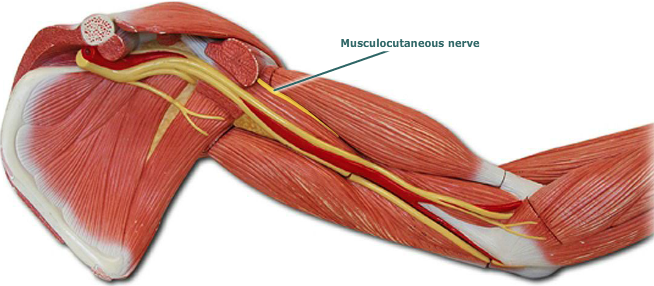Exploring Common Health Issues Modern Women Face
As a modern woman, you navigate a myriad of responsibilities, juggling careers, relationships, and a host of other commitments. It’s no secret that in the midst of this hustle, taking care of your health often takes a backseat. But, fret not as this blog is here to be your guide. In this blog, we’ll explore the common health issues that modern women face daily.
Addressing Mental Health Challenges
You navigate a bustling world, and you need to recognize that mental health is as vital as physical well-being. According to the World Health Organization, the prevalence of depression is approximately 50% higher in women compared to men. It’s a stark reality that you may encounter, emphasizing the importance of acknowledging and addressing mental health challenges proactively.
In the fast-paced rhythm of today’s lifestyle, stress can take a toll on your mental well-being. Work-life imbalance, exacerbated by societal expectations, places immense pressure on women, fueling stress. Social media adds to the strain, as constant comparison fosters feelings of inadequacy. Recognizing these pressures is the first step in addressing these challenges.
Anxiety, another prevalent mental health issue, can manifest in various aspects of your life. You need to understand the triggers and equip yourself with coping mechanisms. Taking care of your mental well-being is not just a choice but a necessity for a balanced and fulfilling life.
Understanding Issues Related to Pelvic Organs
In the complex web of women’s health, understanding the nuances of pelvic organs is essential. Your pelvic organs, including the uterus, bladder, and bowel, play a crucial role in maintaining your overall well-being. Knowledge about these structures empowers you to make informed decisions, ensuring a proactive approach to potential issues.
Pelvic Organ Prolapse (POP) is a common concern for many women. It occurs when pelvic organs descend, creating a bulge in the vaginal wall. This issue often results from weakened pelvic floor muscles, a condition that can be exacerbated by factors like childbirth, obesity, or chronic coughing. Recognizing the signs early on allows for timely intervention and management, contributing to better overall pelvic condition.
Another common problem is stress urinary incontinence, where urine leaks involuntarily during activities like sneezing or laughing that put pressure on the bladder. While this can affect your daily life, you should be aware that effective treatments are available. Understanding the contributing factors and seeking guidance from professionals can pave the way for improved bladder control.
To treat conditions like POP and stress urinary incontinence, some women opt for transvaginal mesh. However, concerns have been raised about potential side effects linked with these devices. Issues such as mesh erosion, infections, persistent pain, injuries, and scarring in the vaginal area have been reported.
Numerous impacted women are currently taking legal measures with the assistance of legal professionals, filing lawsuits to obtain the compensation they rightfully deserve. Those affected are engaging in transvaginal mesh lawsuits to hold manufacturers responsible and secure just compensation. TruLaw reports that in the United States alone, more than 100,000 lawsuits have been initiated against manufacturers specifically for these concerns.
In the aftermath of legal proceedings, several states are actively backing the affected individuals by criticizing the manufacturers. As per the transvaginal mesh lawsuit update, West Virginia emerges as a pivotal participant in the ongoing transvaginal mesh lawsuit narrative. Recently, the state finalized a settlement of $3.9 million with Johnson & Johnson concerning accusations related to faulty pelvic mesh products.
Balancing Hormones in the Modern Lifestyle
Many modern women navigate a lifestyle where hormonal imbalances are prevalent. A survey by the American Psychological Association highlights that nearly half of U.S. women aged 30 to 60 experience symptoms signaling hormonal fluctuations. A range of factors could lead to hormonal imbalance.
Modern women often grapple with hormonal imbalances, a consequence of sedentary lifestyles and poor dietary choices. Irregular eating patterns and processed foods disrupt hormonal equilibrium, affecting overall health.
Chronic stress amplifies hormonal imbalances as the body produces excess cortisol, impacting reproductive hormones. The constant pressure of modern life contributes to heightened stress levels, further disrupting the delicate balance of hormones crucial for women’s well-being.
Recognizing stressors and adopting stress-management strategies is key to maintaining hormonal equilibrium.
Hormone regulation is significantly influenced by the role of nutrition. Your diet directly impacts hormone production and function. Including a balanced diet can positively influence hormonal health. Ensure you include essential nutrients, such as omega-3 fatty acids and vitamin D, to support hormonal balance. By making mindful choices in your daily nutrition, you empower yourself to navigate the challenges of hormonal fluctuations in the modern lifestyle.
Tackling Reproductive Health Concerns
You may confront various reproductive health issues in the modern era, demanding attention and understanding. Active participation in regular screenings ensures early detection of potential concerns, allowing for prompt intervention. Engaging in open conversations with doctors empowers you to make the right decisions.
Amidst the challenges, accessibility to reproductive health care remains pivotal, as revealed by a study in JAMA Network Open. In 2021, 45% of women encountered at least one barrier to reproductive health care, a 10% increase from 2017. Moreover, about 19% experienced a minimum of three barriers in 2021, marking an increase from 16% in 2017.
Advocating for improved accessibility to services is crucial in addressing the reported barriers. By actively participating in community initiatives, you contribute to breaking down obstacles and enhancing reproductive health care availability for all.
Preventive measures play a vital role in tackling reproductive health concerns. From contraception options to understanding fertility, staying informed enables you to make choices aligning with your reproductive goals. Taking charge of your reproductive health involves a proactive approach, ensuring that you navigate the complexities with knowledge and confidence. In conclusion, navigating the common health issues faced by modern women requires awareness, proactive choices, and a commitment to self-care. From mental well-being to reproductive health, each aspect is interconnected to a woman’s overall well-being. By staying informed, seeking support, and advocating for accessible healthcare, you empower yourself to lead a balanced and fulfilling life.







